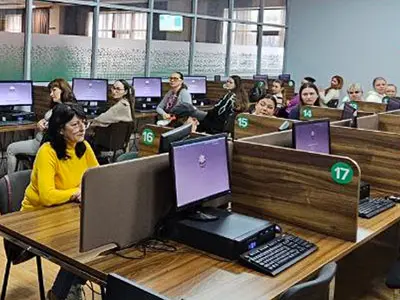
Imagine a long line at the Ministry of Internal Affairs service center. Approximately three out of every four people leaving the office after taking the theory test for their driver's license take home not the coveted driver's license, but the bitter realization of failure. These are the stark statistics released by the Ministry. Over 500,000 tests have been administered since January, but only 25% of candidates have successfully passed this threshold on their first attempt. This figure is not only impressive—it makes us seriously consider how we prepare ourselves to hit the road.
The most paradoxical aspect of this story is the difference between driving school graduates and those who learned the rules on their own. Logic dictates that organized courses should provide better preparation. However, the Ministry of Internal Affairs data refutes this axiom. Among self-taught drivers, 25.3% pass on their first attempt, while among those who completed the entire course at a driving school, the success rate is even lower—only 21.4%. It seems that many people view driving school as a formality, a mandatory stage that they simply have to sit through. The Ministry of Internal Affairs, however, clearly states: it's not where you study, but how you do it. The key to success isn't a folder full of notes, but a systematic approach, regular review, and, crucially, the ability to focus on the details that often prove fatal on the exam.
The requirements, upon closer inspection, don't seem prohibitively difficult. Twenty minutes, twenty questions, and the right to two mistakes. But it's precisely this seemingly simple format that conceals the main pitfall. Many candidates, overestimating their abilities, take the exam unprepared, hoping for the best or simply memorizing the questions without delving into the rules. Anxiety, time pressure, and the unfamiliar environment take their toll—and the results are disastrous. After failing, you'll have to wait a ten-day break, a kind of "time-out" given to finally sit down with your textbooks and sort out your mistakes. There's no limit to the number of retakes, but each subsequent attempt is costly—the service costs 250 hryvnias—and nerves, which, as we know, never recover.
Scheduling an exam today takes just five minutes. You can do it online through the convenient "E-zapis" service or in the MVS mobile app. Technology has greatly simplified organizational matters, but alas, there's no magic button that can implant knowledge in your head. Perhaps these alarming statistics will prompt everyone involved to reconsider their approach. For future drivers, it should be understood that obtaining a license requires real knowledge, not just a façade of it. For driving schools, it should be a consideration of the quality of instruction, which should be higher than that of self-study. After all, traffic rules are more than just a collection of answers to exam questions. It is the language that all of us, drivers and pedestrians, use on the road, and not knowing it can be very costly.

